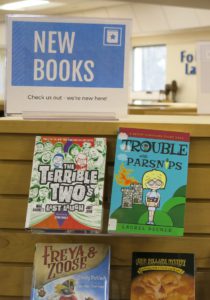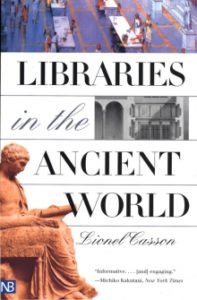
Coming to a library near you? The Joy of Holds + Recommendations for eBooks
Treat the kids to books at your library! Library Love Today–all my friends who love libraries–I’m going to tell you a secret that will make

Treat the kids to books at your library! Library Love Today–all my friends who love libraries–I’m going to tell you a secret that will make

What were libraries like in the past? While trying to figure out how ancient books were repaired, I came across the delightful Libraries in the